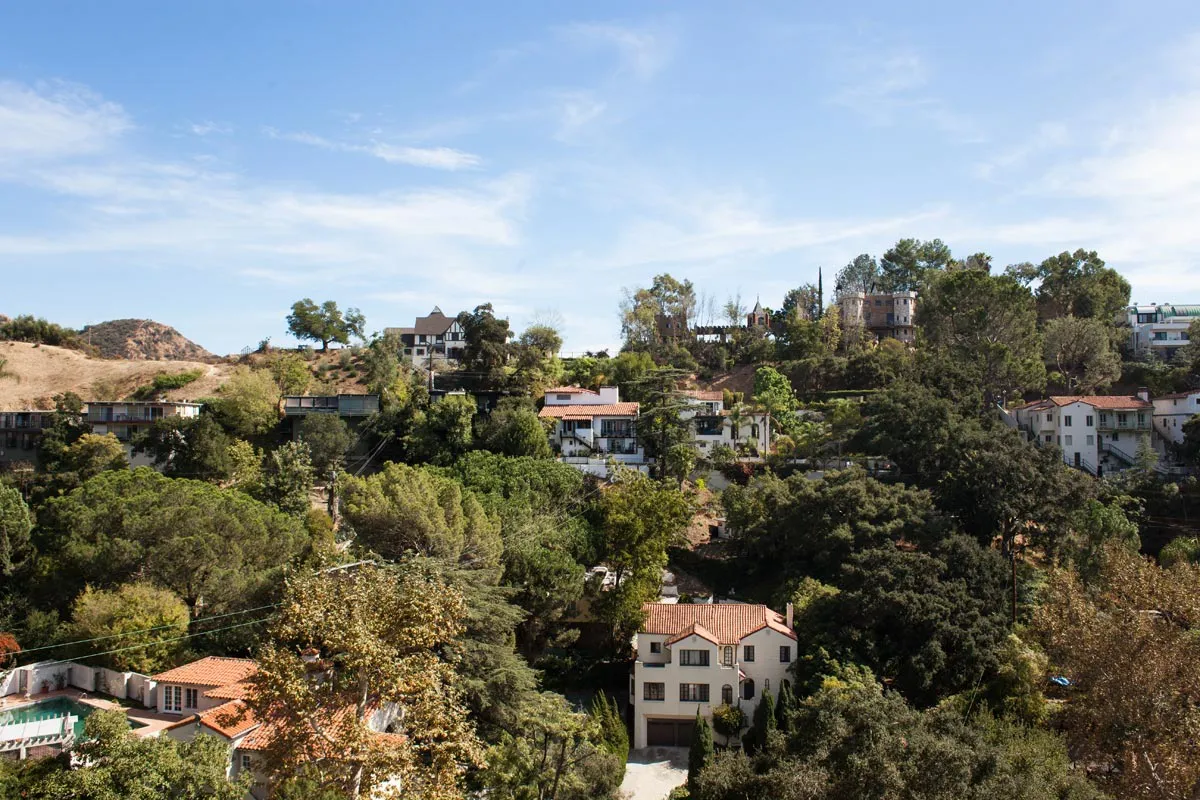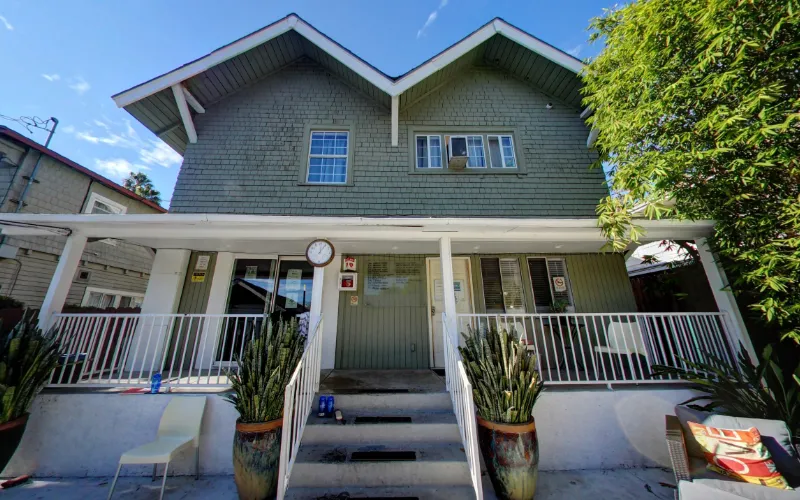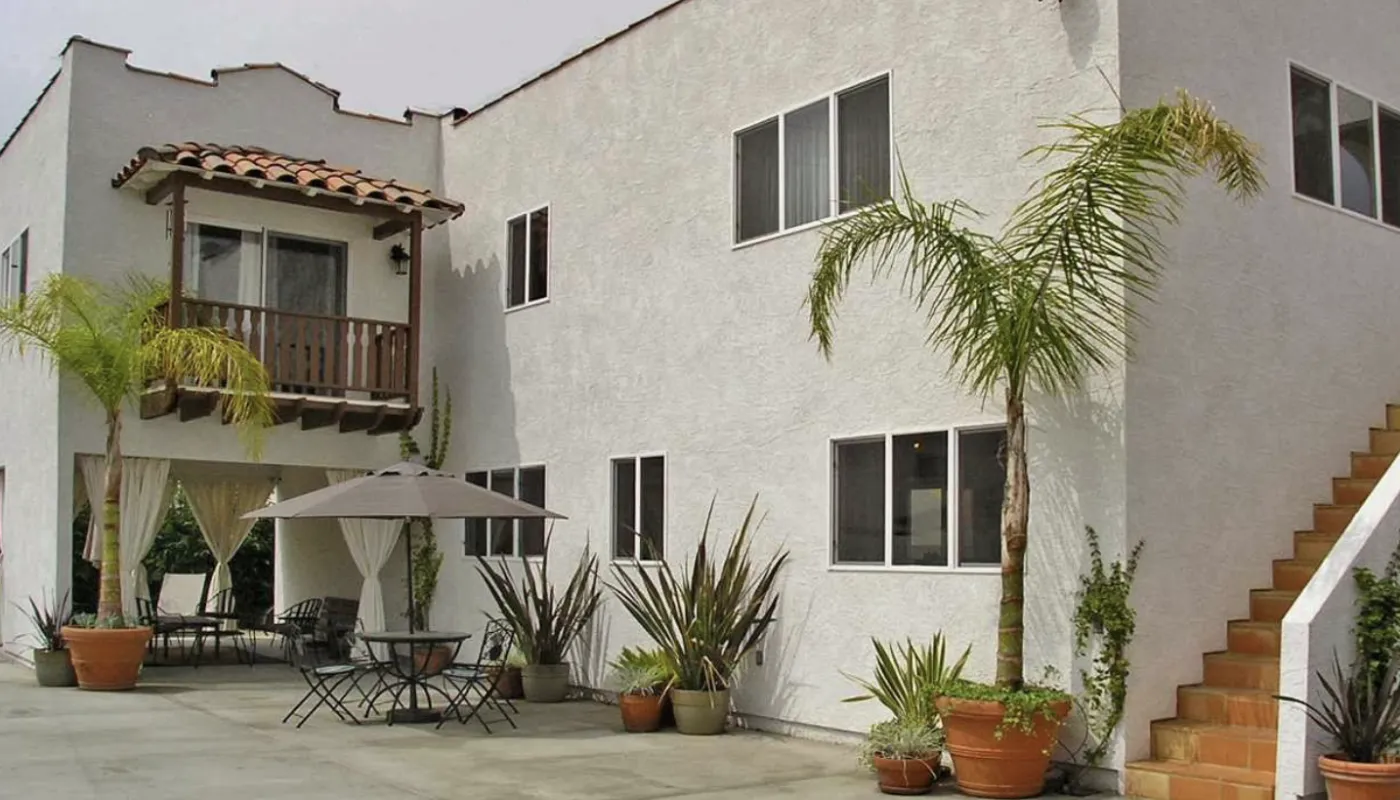Explore leading prescription drug rehab centers and treatment facilities in Los Angeles and nearby areas. Prescription drug addiction treatment centers provide comprehensive programs to address dependency on medications like painkillers, sedatives, and stimulants. Through evidence-based therapy, medical detox, and education, individuals receive support to manage cravings, rebuild emotional stability, and develop healthy coping skills. Find the best prescription drug rehab centers dedicated to helping individuals achieve lasting recovery, improved mental health, and a fulfilling, substance-free life.
Ads
More Info
Advertisement Disclosure
Our website is funded by advertisers who pay for prominently labeled placements.
Read More159 Rehab Centers were found
Filters
Locations
- Los Angeles(+98)
- Culver City(+14)
- Westlake Village(+13)
- Woodland Hills(+11)
- Beverly Hills(+10)
- Santa Monica(+9)
- Sherman Oaks(+7)
- West Hollywood(+6)
- Malibu(+5)
- Chatsworth(+5)
- Pasadena(+5)
- Encino(+5)
- Redondo Beach(+4)
- Lancaster(+4)
- Reseda(+4)
- Studio City(+4)
- Northridge(+3)
- San Mateo(+3)
- Lynwood(+3)
- Vernon(+3)
- Van Nuys(+3)
- Tarzana(+3)
- North Hollywood(+3)
- Glendale(+3)
- Gardena(+3)
- Riverside(+3)
- Granada Hills(+2)
- Shadow Hills(+2)
- Venice(+2)
- Orange County(+2)
- Pomona(+2)
- West Hills(+2)
- Valley Village(+2)
- Burbank(+2)
- Brentwood(+2)
- Long Beach(+2)
- Sun Valley(+1)
- Torrance(+1)
- San Jacinto(+1)
- San Pedro(+1)
- Upland(+1)
- Whittier(+1)
- Toluca Lake(+1)
- Thousand Oaks(+1)
- Simi Valley(+1)
- Mission Viejo(+1)
- Acton(+1)
- Beaumont(+1)
- Wilmington(+1)
- Panorama City(+1)
- Anaheim(+1)
- Laguna Hills(+1)
- Inglewood(+1)
- Alhambra(+1)
- Rosemead(+1)
- Maywood(+1)
- Manhattan Beach(+1)
- Monterey Park(+1)
- Claremont(+1)
- Covina(+1)
- La Puente(+1)
- Pico Rivera(+1)
- San Fernando(+1)
- Azusa(+1)
- Santa Fe Springs(+1)
- Glendora(+1)
- Agoura Hills(+1)
- El Segundo(+1)
- Duarte(+0)
- Sunland(+0)
- Downey(+0)
- Cudahy(+0)
- El Monte(+0)
- Compton(+0)
- Hermosa Beach(+0)
- Cerritos(+0)
- Calabasas(+0)
- Bellflower(+0)
- Bell Gardens(+0)
- Avalon(+0)
- Arcadia(+0)
- Altadena(+0)
- Paramount(+0)
- South El Monte(+0)
- Walnut(+0)
- West Covina(+0)
- Santa Clarita(+0)
- San Gabriel(+0)
- San Dimas(+0)
- Rolling Hills(+0)
- Orange(+0)
- Hawaiian Gardens(+0)
- Palmdale(+0)
- Norwalk(+0)
- Montebello(+0)
- Lakewood(+0)
- South Pasadena(+0)
- Carson(+0)
- Hawthorne(+0)
Conditions
- Drug(+278)
- Alcohol(+219)
- Mental Health(+195)
- Opioid(+193)
- Cocaine(+184)
- Trauma(+180)
- Methamphetamine(+177)
- Benzodiazepines(+174)
- Heroin(+173)
- Prescription Drugs(+159)
- Depression(+152)
- Anxiety(+149)
- Xanax(+145)
- Synthetic Drugs(+138)
- PTSD(+133)
- Adderall(+131)
- Marijuana(+112)
- Bipolar(+109)
- Ecstasy(+104)
- MDMA(+99)
- Behavioral Health(+93)
- LSD(+93)
- Psychedelics(+91)
- Fentanyl(+71)
- Stress(+71)
- OCD(+69)
- Personality Disorders(+63)
- ADHD(+61)
- Gambling(+38)
- Eating Disorders(+35)
- Anorexia(+34)
- Binge Eating Disorder(+34)
- Bulimia(+33)
- Schizophrenia(+32)
- Gaming(+28)
- Internet Addiction(+27)
- Sex Addiction(+25)
- Burnout(+23)
- Pornography(+22)
- Shopping(+10)
- Narcissism(+8)
Insurances
- BlueCross BlueShield(+129)
- Aetna(+126)
- Anthem(+105)
- Cigna(+105)
- United Healthcare(+66)
- Humana(+63)
- Optum(+53)
- Medicaid(+53)
- MHN(+51)
- Magellan Health(+47)
- Kaiser Permanente(+39)
- Medicare(+31)
- GEHA(+31)
- ComPsych(+29)
- Highmark(+25)
- AmeriHealth(+13)
- Tufts Health(+11)
- Oscar(+9)
- CareFirst(+9)
- Molina Healthcare(+8)
- Intermountain Healthcare(+6)
- Beacon Health Options(+2)
- UMR(+2)
- NYSHIP(+2)
- ILWU(+2)
- Geisinger(+2)
- Empire Life(+2)
- Empire BCBS(+2)
- Bright Health(+2)
- GuideWell(+1)
Therapies

$30,000-$50,000

N/A

Call for rates - 7-30 days

$1,000/day - 30+ days

$30,000

$20,000 - 30 days
Understanding Prescription Drug Addiction and Treatment Pathways
Prescription drug addiction is a growing crisis in Los Angeles and across the United States. While these medications are initially prescribed for legitimate medical reasons, they can quickly lead to dependence and addiction when misused. Commonly abused prescription drugs include opioids like OxyContin and Vicodin, sedatives like Xanax and Valium, and stimulants such as Adderall and Ritalin. Many people find it difficult to quit without professional help, making targeted care essential for recovery. For an overview of other addiction types and dual-diagnosis options in Los Angeles, see our pages on gaming addiction and opioid use disorder.
How Prescription Drug Addiction Develops
Many people assume that because a doctor prescribes a medication, it must be safe. However, prolonged use of certain prescription drugs can lead to tolerance, requiring higher doses to achieve the same effect. As dependency increases, individuals may start taking more than prescribed, seeking multiple doctors for prescriptions, or even turning to illicit sources when access is restricted.
Some people begin misusing prescription drugs recreationally, unaware of how addictive they can be. Others are prescribed these medications for pain, anxiety, or focus disorders but develop a dependency over time. Regardless of how addiction starts, once it takes hold, stopping without medical supervision can be extremely challenging.
Types of Prescription Drugs That Lead to Addiction
Not all prescription medications have the potential for abuse, but several classes of drugs are particularly problematic. Opioid painkillers are among the most addictive, often leading to heroin use when prescriptions run out. Benzodiazepines, commonly prescribed for anxiety and insomnia, can cause severe withdrawal symptoms when use is stopped abruptly. Stimulants prescribed for ADHD, such as Adderall and Ritalin, are often misused by students and professionals seeking enhanced concentration and energy. Learn more about benzodiazepine risks and complications in our specialty guides.
Each type of prescription drug affects the brain differently, which means detox and recovery must be tailored to the individual’s needs. If you’re considering options, see how different levels of care support successful prescription drug recovery in Los Angeles.
Recognizing the Signs of Prescription Drug Addiction
Prescription drug addiction can be deceptive because many people believe they are simply using their medication as needed. However, there are clear warning signs that indicate dependency. Individuals may find themselves taking higher doses than prescribed, running out of medication too soon, or experiencing withdrawal symptoms between doses. They may begin obsessing over when they can take their next pill or feeling anxious if they don’t have access to their medication.
Behavioral changes often accompany prescription drug addiction. People may start avoiding social situations, neglecting responsibilities, or engaging in risky behaviors to obtain more medication. Mood swings, secrecy, or sudden financial struggles can signal a problem. Prescription drug addiction is frequently linked to co-occurring mental health challenges such as anxiety or depression.
The Challenges of Prescription Drug Withdrawal
One of the biggest obstacles to quitting prescription drugs is the withdrawal process. Depending on the type of drug, withdrawal can range from uncomfortable to life-threatening. Opioid withdrawal can cause intense flu-like symptoms, while benzodiazepine withdrawal can trigger severe anxiety, seizures, and even psychosis. Stimulant withdrawal often leads to extreme fatigue and depression. Because withdrawal can be dangerous, many people relapse just to avoid the discomfort.
Los Angeles rehabs provide medically managed detox and support. For more detail on evidence-based therapy, see our section on CBT for addiction or EMDR therapy for trauma-related cases.
Treatment Options for Prescription Drug Addiction
Successful recovery from prescription drug addiction involves more than just quitting the substance. It requires addressing the underlying reasons for addiction and developing new coping strategies. Many individuals initially prescribed these medications were dealing with chronic pain, anxiety, or attention disorders, so treatment must offer alternatives for managing these conditions without dependency.
Inpatient rehab programs offer a highly structured environment for those who need intensive care, while outpatient programs provide flexibility for those balancing work or family obligations. Group counseling, holistic approaches like mindfulness and movement therapy, and behavioral therapies are all key. If trauma has contributed to substance use, specialized therapies such as Dialectical Behavioral Therapy may be recommended.
The Role of Medication-Assisted Treatment in Recovery
For some individuals, medication-assisted treatment (MAT) is an essential tool—especially for opioid addiction. Medications like Suboxone and methadone can help stabilize withdrawal and prevent relapse, always as part of a comprehensive plan including therapy and support.
Life After Prescription Drug Rehab
The journey to recovery doesn’t end after completing a rehab program. Many individuals face challenges in maintaining sobriety, especially if they were originally prescribed medication for a legitimate health issue. Learning to manage chronic pain, anxiety, or focus disorders without prescription drugs is a critical part of long-term recovery.
Aftercare programs—covering continued therapy, relapse prevention, and peer support—are vital. If other issues like cocaine misuse, marijuana addiction, or behavioral addictions are present, integrated treatment can be provided by local centers.
Finding the Right Prescription Drug Rehab in Los Angeles
Choosing the right rehab program depends on the type of drug dependency, personal needs, and the level of care required. Dual diagnosis treatment is recommended for those with co-occurring disorders such as trauma or PTSD. Consulting with a treatment professional helps match each person to the most effective approach for lasting results.
Frequently Asked Questions
How long does prescription drug rehab take?
Is it dangerous to quit prescription drugs suddenly?
Can I get treatment while still taking my prescribed medication?
Does insurance cover prescription drug rehab in Los Angeles?
Ads
More Info
Advertisement Disclosure
Our website is funded by advertisers who pay for prominently labeled placements.
Read More






































